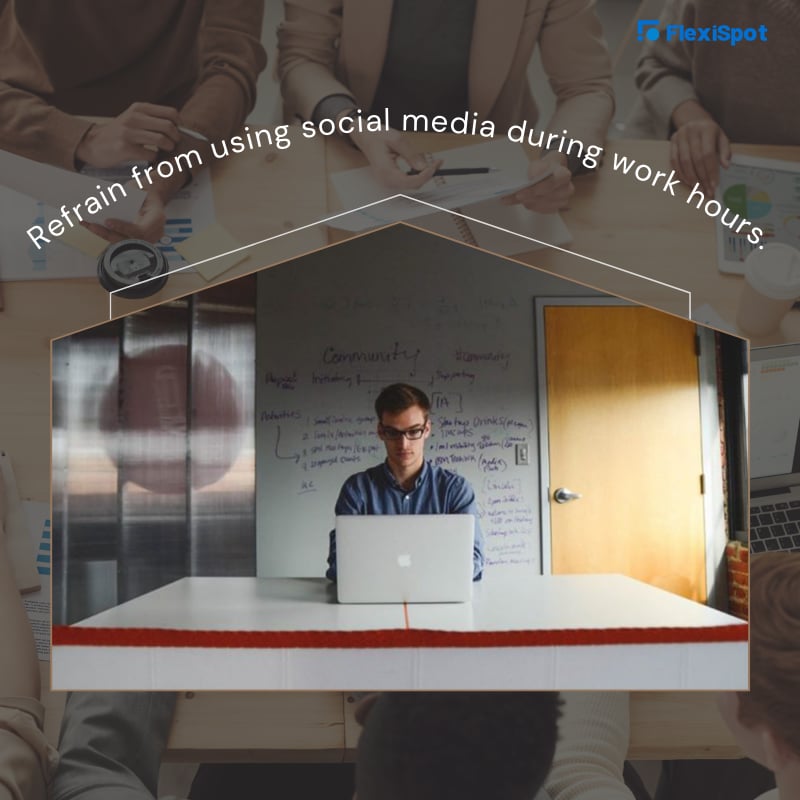How you behave today will dictate how your life will look in the future. Since you spend most of your time at work, how you behave at work will mark how you will be remembered by your officemates and bosses. This will affect how your future career path will be shaped, your behavior either making or breaking your career. At the end of the day, even if your skills are at par with your job position, what people will remember is how you behave towards them in the workplace. This is why it’s important to stay professional when interacting with your colleagues.
So how do you behave professionally? Being professional concerns attitude, appearance, and manners. People would notice how you speak to them, the language that you use, the tone of your voice, and the gestures that you make. People would be looking at the way you dress up for work if it’s appropriate in the workplace and presents yourself as a competent and reliable colleague. People will look at how you make decisions and the actions that you take for every task that is given to you. They’ll observe what time you arrive at work, how you work during the day, and what time you leave after work. Professionalism touches on how you respect your colleagues and superiors, how you show up optimistic and enthusiastic to work, how politely you interact, and how you weigh and enact decisions that affect yourself and others.
Once you begin to work professionally, your colleagues would take notice and observe your efficient and productive work performance. When asked about you, your colleagues won’t be able to say anything significantly bad because they think you are a reliable co-employee which also makes them enjoy working with you. Because you behave professionally, you may even be up for a promotion and considered for leadership roles.
To speak in more specific terms, below are tips on how you can show up in the most professional way when in the workplace.

1. Do not be late.
When you show up on time, it means you respect the time of others. It means you are someone they can rely on to follow rules and always be available to commit themselves fully. Your punctuality is a reflection of your character. This shows your bosses and colleagues that your job means a lot to you and that you will show up every time in the best way possible.
If you are having trouble arriving on time, there are ways you can fix this late habit. Pinpoint what is causing you to be late in the first place. If you lack the energy to get up in the morning, why not sleep early the night before so that you start your morning feeling reinvigorated by sleep. If it's a lack of motivation, go back to your why. Why are you working? If you’re not happy with your job, know that there are bills to pay and unless you have a second option, do your best to show up professionally with the current one. If you forget about your schedule, track it down in your calendar. If the commute takes up your time, account for the travel period and add a few minutes more for emergencies. If all else fails, you can still act professionally by letting your superior know that you’re running late. Make sure you apologize.

2. Dress appropriately.
While we have the freedom to dress the way that we want, there are companies with strict dress codes. If you work for such a company, then you have to abide by the rules. You should also check whether you’re allowed to wear casual clothes in the office. It’s called respecting the culture of the workplace that you currently belong to. If you can’t live with it or have reasons why you should dress a different way, then address the management properly. Plus if you want potential career growth, you need to always look presentable and neat just as how you might expect your colleagues and clients to also look ready for work.
So what should you do? Iron your clothes. Do not wear ones that are too big or too tight. Do not wear slippers as if you are at home or heading to the beach. Be aware of the company guidelines and mindful of the office culture you entered and are now a part of.

3. Use respectful language.
If in your office, people call each other by their first names, then follow suit. Follow also if they have a specific way of addressing superior or if that boss has a special request on how he or she wants to be called. This is called respect for authority; after all, you are the one who applied for the job. If you are in the workplace and casually talking to your colleagues, refrain from using foul language. While we want to make friends (and of course, we do), you still have to put boundaries in place as to what you talk about. Do not open sensitive topics and make sure that you are not crossing the line and being too nosy about matters that do not concern you. You can always talk to a friend at work in private or outside of the workplace.
You also owe your colleagues your attention. Listen when someone is talking during a meeting. Do not use your phone when someone strikes up a conversation with you. Do not use confusing language because this might just lead to a misunderstanding. Communicate your thoughts respectfully even if you disagree with other people’s opinions and different beliefs. Mind not only the words that you use but also the tone of your voice. Written correspondence such as emails should also be kept as professional as possible, especially since all of these are recorded transactions.

4. Take responsibility for your mistakes.
Do not point fingers when you commit a mistake. Acknowledge that you did something wrong because this is the only way you will be able to retract or correct it. By acknowledging it, you also stop similar incidents from happening again. To humble yourself, focus on what you did and not what others have done. There are eyes watching you and even if you did commit a mistake, they will commend you for taking responsibility and remember what you did to correct it. After every apology, show them that you learned from the mistake that you have done.

5. Refrain from using social media during work hours.
Wait until it’s break time before you check your social media accounts. You are at a place of work so what you have to do is work. Facebook, Instagram, and Twitter are distractions to what you have to do at the moment. Show your colleagues and bosses that you have the capacity to be fully present at work. In one way or another, someone will notice that you are consumed by social media and might report you to a superior. You want to be alert and focused on finishing your tasks so why not use a standing desk or an under desk bike? These items and other ergonomic pieces of furniture can help you focus your mind at work.